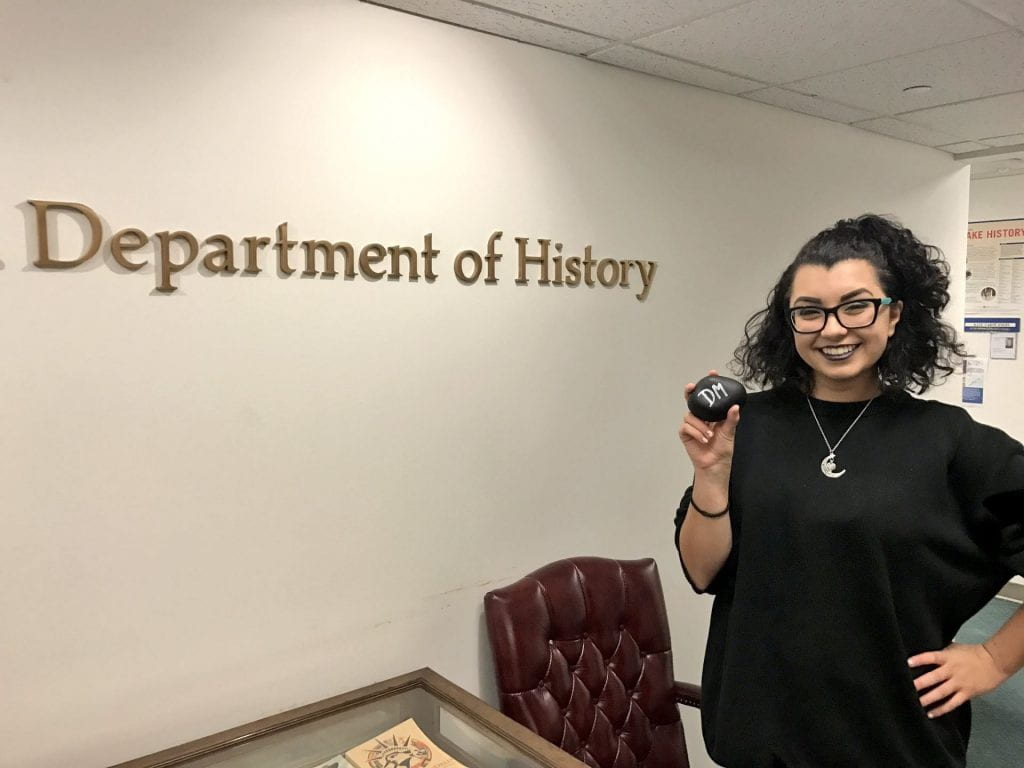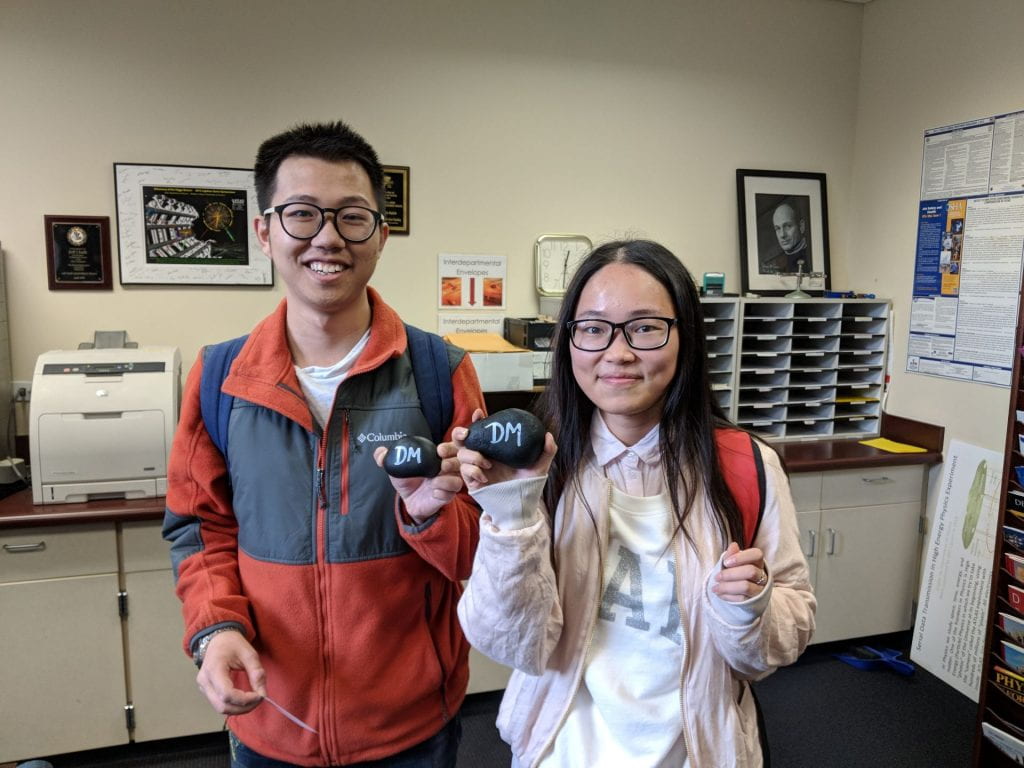The Society of Physics Students at SMU is hosting a “Dark Matter Particle Rock Hunt” on October 29th, 2021, from 8am-3pm (US Central Time). This event is in celebration of SMU’s Fifth Annual Dark Matter Hunt, and we look forward to seeing everyone in person this year!
During the hours of 8am-3pm, you can join in the hunt for 26 rocks representing the 26% of our universe that is dark matter. These rocks will be spread across the entire campus in eye view, so no need to go digging around in the dirt. Visit the SMU twitter page throughout the day for tips and hints on where these rocks are located. When you find a rock, post a picture of yourself and the rock on twitter and tag the SMU twitter page (@SMUPhysics). You can then take your rock to FOSC 102 and claim your prize!




Students, faculty, staff, and members of the SMU community are encouraged to participate in searching for Dark Matter and learn about the importance of Dark Matter to our universe. Each dark matter particle will be labeled and accompanied by a curious fact about dark matter, based on what is known so far. If you find a rock, we encourage you to let your friends and colleagues know so they can participate as well.
Dark Matter Day is associated each year with Halloween, and is meant to draw international attention to the search for the nature of dark matter. This remains one of the largest mysteries in modern science. Observational evidence of its qualities, especially, is essential to making progress in this subject.



